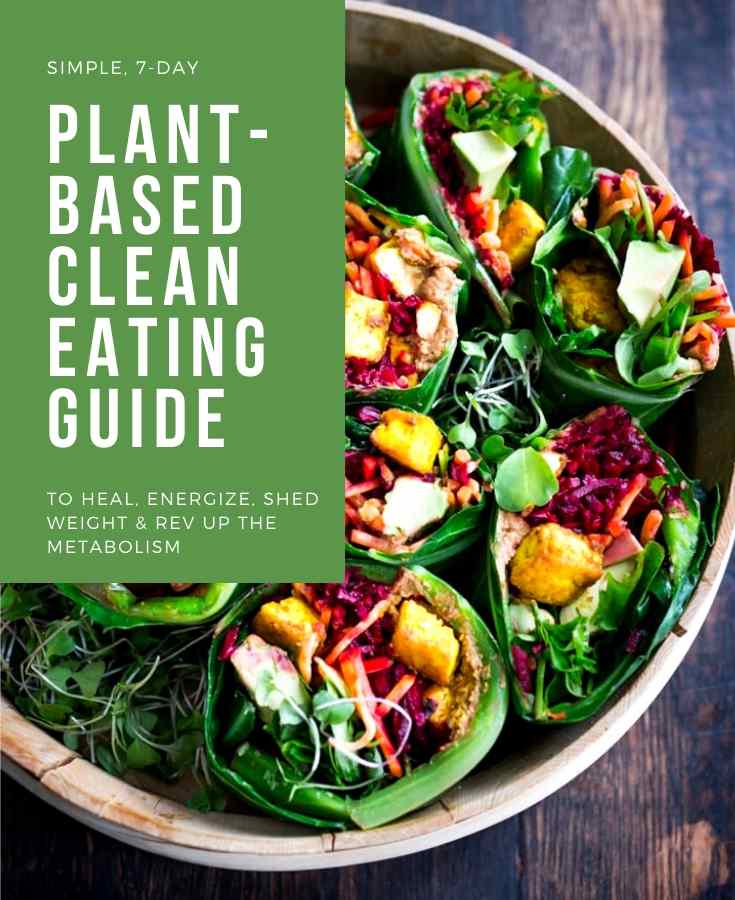
There are many ways to prevent diseases. Some of these interventions focus on early detection of a disease. Improved sanitation and clean drinking waters are other methods. In addition, many diseases can be treated when they are detected at the earliest stage. For example, policies can improve access to treatment and exercise emergency powers in response to epidemics. It doesn't matter which method you use, prevention is about reducing disease and decreasing its burden.
Generally, the best way to prevent a disease is to improve your lifestyle. Healthy lifestyle choices can help to prevent heart disease, cancer, and other diseases. Even though you can't totally quit smoking or become more active you can reduce the likelihood of these conditions. Healthy lifestyle habits, such as a healthy diet and regular exercise, are essential to preventing chronic diseases. While it may be difficult to change your lifestyle, it is possible to live a healthier life.

Preventative medicine refers to taking actions before a disease can be diagnosed. Preventative medicine involves understanding the natural history of a disease, and making interventions to decrease its prevalence and incidence in a population. Today's epidemiological knowledge helps prevent and control the transmission of infectious and degenerative diseases. Public health prevention and education projects involve the dissemination of scientific knowledge and normative recommendations to change habits. It's a greater effort than ever before to keep people healthy.
There are many ways to prevent diseases. These strategies are called "interventions"; they can be broken down into primary, secondary, or tertiary. Rehabilitation programs, for example help injured workers get back to work and help them find a new job. Vocational rehabilitation programs also help disabled people to return to work. There are many more ways to prevent illness. These methods are inexpensive and effective. They can make a significant difference in your health.
Public health policy has a key goal: to prevent environmental factors and diseases. Numerous countries have developed health care systems that encourage prevention of diseases and improve health. It is possible to successfully implement a population-based screening system by investing in a high quality primary care program. This program is designed to improve and prevent disease. This is known as disease prevention. Prevention of diseases and the Prevention of Environmental Hazards

It takes a shift in perspective and knowledge to prevent diseases. Health is the ability to lead a healthy and active life. Health promotion's goal is to improve people's lives and prevent them from becoming sick. Hence, many actions aimed at promoting health are also geared towards preventing diseases.
FAQ
What is the best way to increase muscle mass?
You need to perform two types of exercises when building muscle mass. These are compound movements and isolation exercises. Isolation exercises target specific muscles while compound moves focus on multiple groups at once.
The best way to improve your workouts is to choose exercises that challenge all your major muscle groups. This ensures you're always pushing yourself during your workouts.
An app called MyFitnessPal allows you to keep track of everything. It lets you log everything from calories burned and weight lifting. You can also create custom meal plans based on your goals.
How often should you exercise per week?
It all depends upon how much time you have and what type or exercise you prefer. An average guideline is to do moderate-intensity aerobic activity 3 to 5 days per semaine. It's important that you don't overdo it. For maximum results, consistent exercise is key to getting the most out of your workouts.
Which exercises work best for you?
It all depends upon your fitness goals. Some people are more focused on endurance activities such as running, cycling and swimming. Some people enjoy lifting weights and using resistance bands. There are many options for exercise today. You can choose the one that best suits you.
What are the best foods to avoid when trying weight loss?
Avoid trans fats. Trans fats can raise LDL (the unhealthy) cholesterol levels while lowering HDL levels (the good).
Trans fats can be found in fast food, deep-fried foods, packaged baked goods, snack cake, and other processed foods.
These unhealthy fats cause inflammation which leads to heart disease, diabetes, and other health problems.
Foods containing artificial sweeteners should also be avoided. Artificial sweeteners can increase your risk of developing cancer.
They are found in everything, from soft drinks to chewing tobacco to candy bars. They also appear in meat, poultry and eggs.
Artificial sweeteners include saccharin.
The American Heart Association advises against using these chemicals, as they could damage DNA.
Is it true to say that protein overeating can lead to kidney stones?
Protein helps maintain healthy bones and tissue. Consuming too much protein can result is calcium excretion via urine. This can lead to kidney stone formation.
It is important that you note that not all people develop kidney stones when they consume more than 2 grams of protein per kg (2.2 pounds). People can eat large amounts of protein and not get kidney stones.
Your sodium intake can prevent kidney stone formation. Sodium regulates the body's water balance. High levels of sodium are linked to a greater risk of developing renal stones.
You can also try reducing your protein intake if you get kidney stones. The majority of adults need protein for half their daily caloric needs. You'll lose weight if you reduce your intake of protein.
If you do decide to eat more protein, don't go overboard. Aim for less than 20% of total calories from protein.
Do I need to exercise every morning?
No! Get at least 30 minutes of moderate-intensity physical activity 5 days a week. This could be walking fast enough so you feel slightly out breath or cycling hard enough to sweat.
How many calories should I consume daily?
The exact amount varies depending on the person. An average person needs 2000-2500 calories per day. The factors that determine how many calories are needed for you include your gender, age, height, activity level, lifestyle, and gender.
Does Weightlifting Burn Fat Faster?
Although weight lifting can help you lose fat more quickly, it is best to combine it with cardio exercises.
For the best results of weightlifting, do it after cardio exercises.
If done correctly, weightlifting can increase your heart rate and oxygen intake which in turn helps you lose weight.
If you don't mix it with cardio, your body won't notice significant changes.
Statistics
- According to the American Heart Association, blood pressure should be checked at least once every two years, beginning at age 20. (my.clevelandclinic.org)
- 10 pounds in a month is likely during a lean bulking phase, especially for beginners. (muscleandstrength.com)
- According to the American Academy of Dermatology (AAD), men over 50 are at a heightened risk of developing it. (healthline.com)
- Get free shipping and 25% off today. (healthline.com)
- Are You One of the 20% of Guys (mh.co.za)
External Links
How To
How can I burn fat while exercising?
Exercise reduces calories by increasing metabolism, and oxygen consumption.
If you exercise with moderate intensity, you can safely lose weight.
These are some tips to help you lose fat while working out:
-
Cardio exercises like walking, running (or jogging), swimming, cycling, running, and/or elliptical training are all good options.
-
For 30 minutes, do it three times a week.
-
You can add strength training into your exercise routine if you're looking to lose even more weight.
-
Avoid doing intense exercises. You can build muscle and not break down muscle tissue.
-
When exercising, make sure to drink lots of water. Water is essential for flushing out toxins and keeping your body hydrated.
-
After exercising, consume low-fat protein smoothies. Protein shakes are great for your muscles and energy.
-
Take smaller meals throughout each day to avoid feeling hungry.
-
Don't skip breakfast! Skipping breakfast can make you tired and sluggish.
-
Mental health is important. Stressful situations can slow metabolism.
-
Keep a positive attitude. Research shows that overweight people gain more weight if they believe they are overweight than those who believe they look good.
-
Get enough sleep. It is harder to lose fat if you don't get enough sleep.
-
Stay active. Be sure to get up and move around every hour or two.
-
Maintain a healthy diet. Eating right keeps you feeling full and satisfied longer.
-
Find relaxation methods. Tenseness can cause stress hormones to break down muscle tissue.
A balanced diet is one that includes all of the essential nutrients required for growth.
Six small meals per day is better than three large meals. This gives your body the time it needs to process what you've eat.
To maintain strong bones, you need to consume 500 mg of calcium each day. Calcium can be found as a dairy product such as milk, yogurt and fortified soy drinks, orange juices, cereals, breads, and cereals.
Calcium is found in leafy vegetables, beans and tofu, as well nuts, seeds and cheese.
Vitamin D is required by the body to absorb calcium. Vitamin D can also be found in some fortified foods such as eggs, fish, and yolk.
Vitamin E is crucial for skin health. Vitamin E can be found in vegetable oils as well as wheat germ oil, peanuts and almonds.
Your body needs zinc to maintain normal immune function and heal wounds. Zinc is found in oysters, legumes, meats, whole grains, and seafood.
Zinc deficiency can cause fatigue, loss of appetite, depression, and impaired immunity.
Sugar intake can lead to insulin resistance which causes blood glucose levels to rise. Insulin resistance leads to weight gain.
High levels of free radicals can lead to insulin resistance. Free radicals can be molecules with unpaired electrons that cause damage to cell membranes.
Food additives, pesticides and herbicides, as well as preservatives, smoking and radiation are all sources of free radicals.
Free radicals can lead to cancer and heart disease, diabetes mellitus, arthritis, asthma, and premature aging.
Eating a well-balanced diet with antioxidants is the best way to prevent free radical damage. Antioxidants protect against oxidative damage.
Vitamin C is found in citrus fruits and beta carotene is found in carrots.
Selenium, manganese (and zinc) are other antioxidant nutrients.
Selenium is known to protect cells from the oxidative damage that free radicals can cause. Selenium is also found in Brazil nuts.
Copper protects the brain, eyes, lungs, and red blood cells. Copper is also found in poultry, meat, and organs.
Manganese, an essential component of bone strength, is crucial. Manganese is found as a component of bone structure in brown rice (spinach, bananas), prunes, raisins and oatmeal.
Zinc is required for normal growth, reproduction and wound healing. Zn is found in lean cuts of meat, white fish, poultry, and eggs.